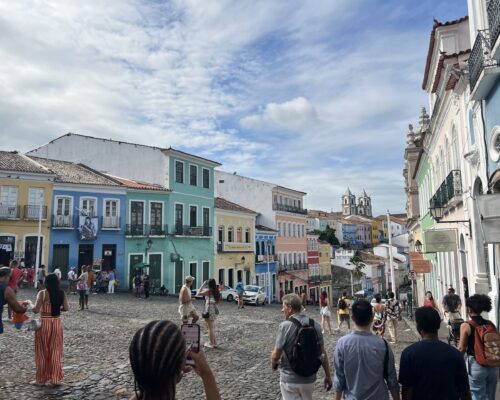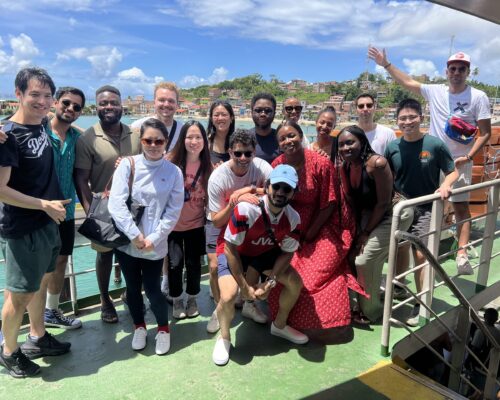Three New LIV Locations Launched in March
March 27, 2025
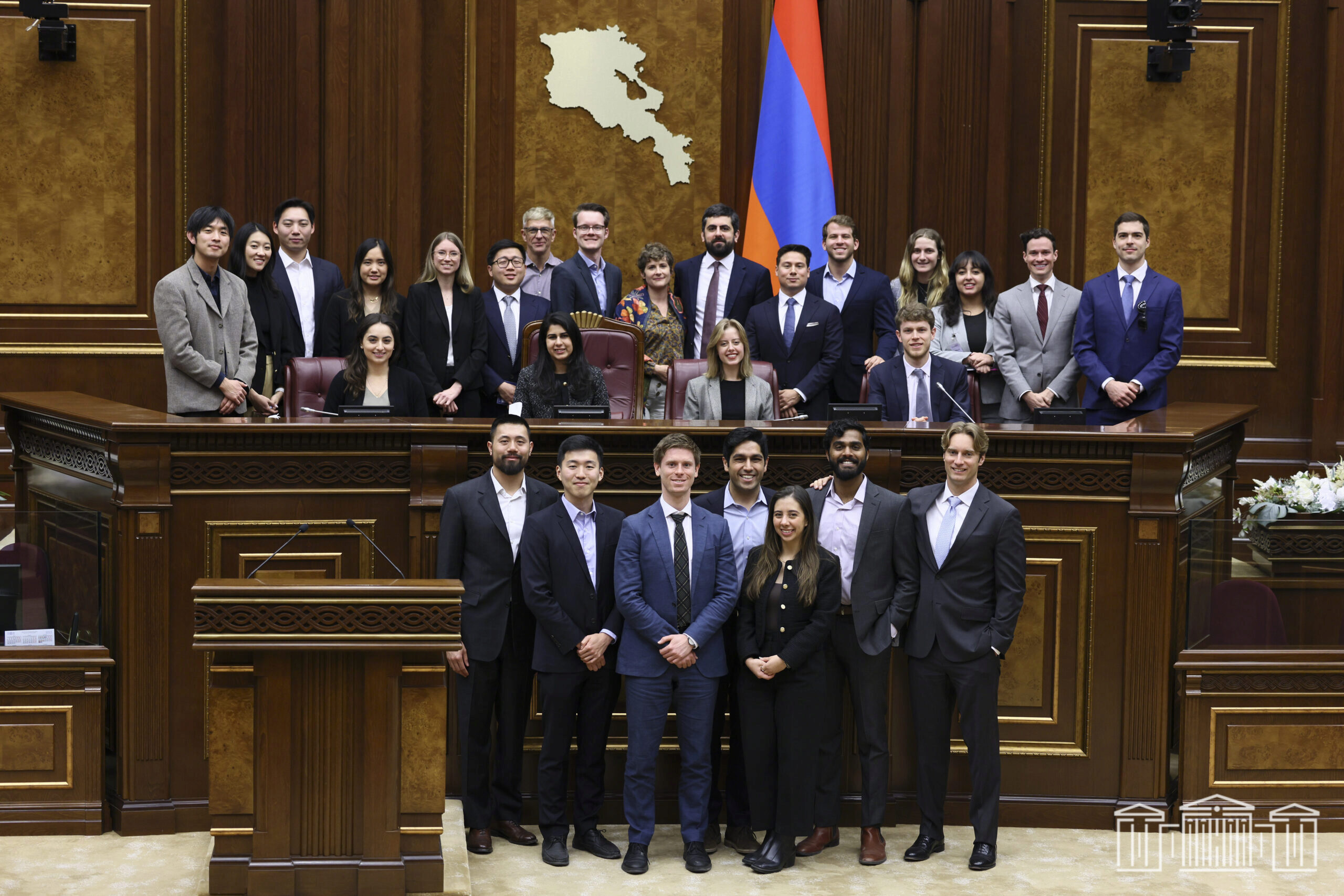
During spring break 2025, the Lauder Institute broadened its global footprint with three new Lauder Intercultural Ventures (LIVs) in Armenia, Botswana, and Brazil. Each LIV brought together 17-24 students under the guidance of a faculty expert, immersing them for 8 days in the cultural, political, and economic environment of their destinations. Through academic exploration and hands-on fieldwork, participants sharpened their intercultural leadership skills and gained deeper insights into real-world challenges.
Armenia: Nation and Diaspora
The Armenia LIV explored the relationship between the Armenian nation-state and its six-million-strong diaspora, examining national identity and the concept of ‘homeland’ alongside contemporary issues tied to immigration, innovation, technology, and economic development. The program addressed Armenia’s geopolitical challenges—its history with Turkey, conflicts with Azerbaijan, and its shift toward the West while maintaining ties with Russia and Iran.
In Yerevan, visits to Armenia’s Parliament, the Central Bank, and local companies provided insight into Armenia’s shifting economic and political landscape, while meetings with community-based organizations addressed topics around memory studies, human rights, national narratives, and post-war societal shifts.
Beyond the capital, participants visited Sevanavank Monastery and explored innovations in rural Armenia. Through these experiences, the program illuminated the forces shaping Armenia today and the evolving role of its global diaspora in the country’s future.
Watch Now: A Day in the Life of a Lauder LIV: Armenia
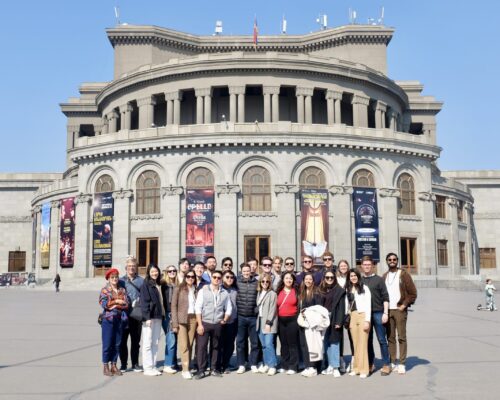
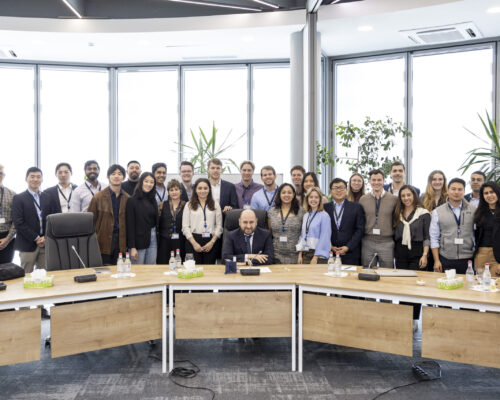
Botswana: Health and Economy
In Botswana, participants explored the intersection of healthcare and economic sustainability in one of Africa’s most politically stable democracies. Botswana’s commitment to providing free biomedical care for all citizens is supported by a robust economy driven by three main industries: diamonds, cattle, and tourism. The program highlighted the country’s unique “therapeutic pluralism,” where modern hospitals coexist with traditional healers and Christian faith-based healing practices.
Based in Gaborone, participants toured local hospitals, observed rituals performed by a traditional healer, and engaged with the Eloyi Christian Church to understand how diverse healing systems contribute to national well-being. Visits to the world’s largest diamond mine in Orapa, a cattle ranch near Gaborone, and a game drive at the ecologically significant Okavango Delta—where conservation efforts intersect with economic and indigenous rights issues—provided firsthand insight into the economic forces sustaining Botswana’s healthcare system.
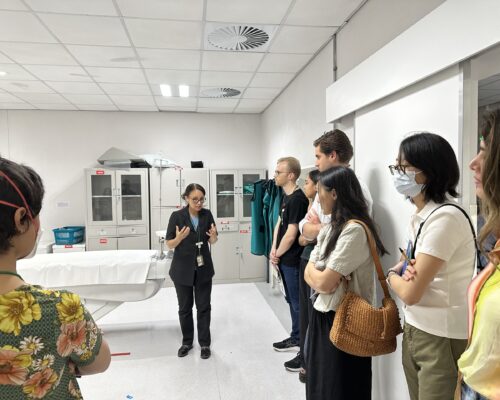
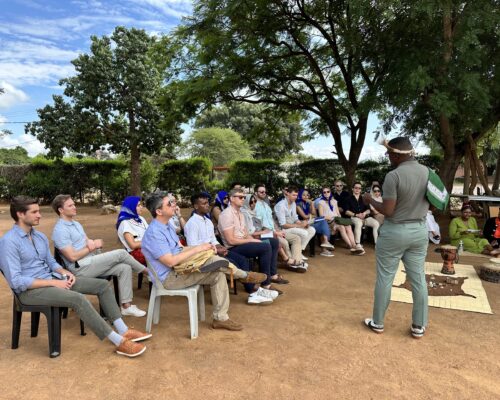
Brazil: The Epicenter of the African Diaspora
The Brazil LIV program took participants to Salvador, a key city in understanding Afro-Brazilian identity and the African diaspora. Nearly half of the 12 million enslaved Africans during the transatlantic slave trade arrived in Brazil, with Salvador serving as a major entry point. As a result, Salvador’s history is deeply intertwined with African heritage, influencing its architecture, religious practices, and social movements.
Students explored the city’s divided geography, from the colonial architecture of the Upper Town to the historic port in the Lower Town, where enslaved Africans once lived and worked. The program highlighted Salvador’s Afro-Brazilian spiritual traditions, particularly Candomblé, and the enduring legacy of quilombos—communities founded by escaped enslaved individuals. By engaging with local organizations and community leaders, participants gained insights into issues of race and cultural preservation, reinforcing the significance of economic inclusion within the broader context of the African diaspora. ■
